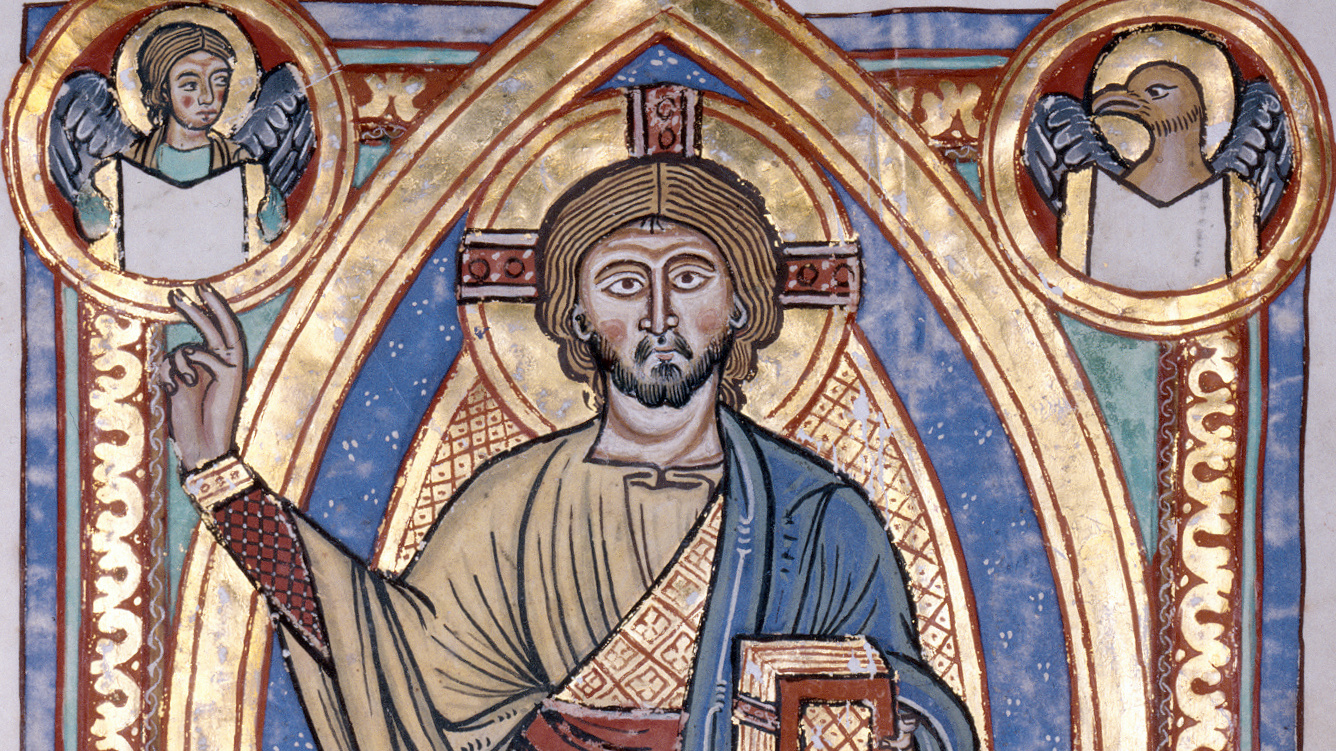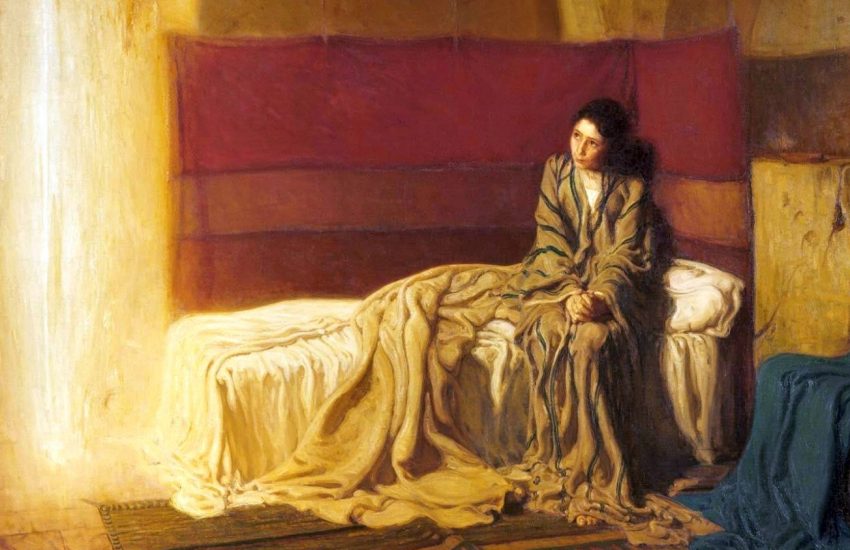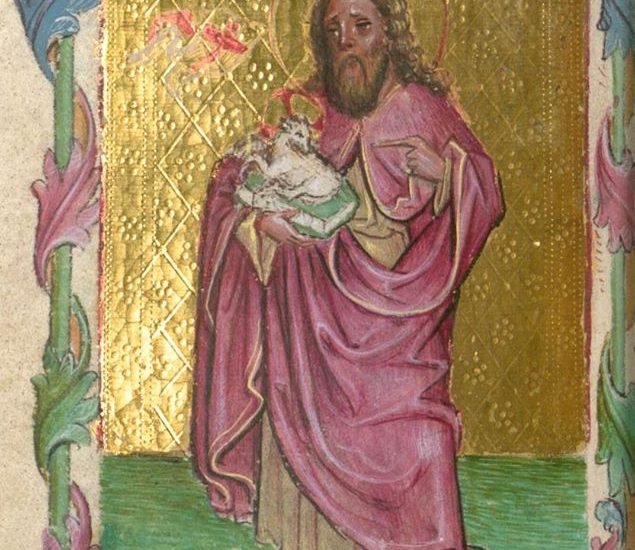While We Wait
First Sunday of Advent (B)
click here for readings
There is something of a debate going on among Catholic liturgical geeks (like me) over whether or not Advent is a penitential season. On the one hand, Canon Law (the law governing the Roman Catholic Church) only says that “penitential days and times in the universal Church are every Friday of the whole year and the season of Lent” (can. 1250). No mention is made of Advent. On the other hand, Advent has a lot in common with the penitential season of Lent. Sacred ministers wear violet color vestments and we don’t sing the Gloria at Mass.
And it makes sense to think of Advent as penitential. The Catholic Church has a long history of observing times of fasting before times of feasting. The greatest feast of the year is Easter, which is preceded by Lent. The second greatest feast is Christmas, so it makes sense that it would be preceded by a corresponding time of fasting.
But is also makes sense to consider Advent differently from Lent. Yes, the Church drapes herself in the same color vestments, and there are other similarities, but the two seasons have a notably different character. Easter is the celebration of the Resurrection of Christ, which could not happen without His death. Before Easter Sunday we have Good Friday, when we commemorate the suffering Jesus endured for us. During the forty days of Lent we remember the forty days Jesus spent fasting in the desert.
Christmas is the celebration of the birth of Christ, and by extension the whole Incarnation sequence, beginning with the Annunciation (which we celebrate on March 25), and including the Epiphany. God has come into the world. He is Emmanuel – God with us. But there is no Good Friday before the Nativity. There is no forty days fasting in the desert. So our anticipatory fast before Christmas looks different.
Before the Resurrection there was suffering and death. Before the Incarnation there was… waiting.
The people of Israel had long awaited the coming of the Messiah, the anointed one of God, first foretold in Genesis as the offspring of the woman who would crush the serpent’s head, who would set things right after the Fall. He was expected to be a prophet. He was expected to be a king. They looked for a great leader that would deliver them from both earthly and spiritual tribulations. They did not expect God Himself to take on human flesh and come among us. But as we see in this Sunday’s reading from Isaiah, they longed for God to come nonetheless.
Return for the sake of your servants… Oh that You would rend the heavens and come down, with the mountains quaking before You, while You wrought awesome deeds we could not hope for, such as they had not heard of from of old… Would that You might meet us doing right… (Is 63:17, 64:3-4)
There was a feeling of longing for a time when God would finally make an appearance in the world and set things right, rewarding the righteous and punishing the unjust, putting an end to oppression. We, of course, want to be on the side of righteousness and justice, which is why Isaiah includes the prayer, “Would that You might meet us doing right.” The faithful of ancient Israel did not know when the Lord would come. They were waiting. The role of the prophets was to remind people to remain faithful to God while they waited.
We still wait for the Lord today. We no longer wait for His first coming. We live in the Age of the Incarnation. The Son’s enfleshment gave birth to the Church and the Sacraments. We live, as Christians, united to the Body of Christ. What we await is His second coming, at the end of time, which will be the final culmination of history. Like Israel of old, we do not know the day or hour. Jesus tells us in this Sunday’s gospel, “Be watchful! Be alert! You do not know when the time will come” (Mk 13:33).
What do we do while we wait? We remain faithful.
This means repenting of any ways we have been unfaithful. Our psalm says, “Lord, make us turn to You” (Ps 80). The Greek word for repentance is metanoia, which literally means to change one’s mind, or to turn around. If we have been unfaithful to God in any way, we need to change our mind about that, and turn back toward God. Advent is a time for us to take stock; to examine our lives and see whether there is anything there unfitting of a child of God. It is a time to turn away from such things; to repent of them, so that we may be found ready on the Lord’s day.
Advent may not be an “official” season of penance, like Lent is. It does not begin with ashes sprinkled on our heads reminding us that we are dust and to dust we will return. Instead, Advent begins with a reminder to be alert. Make yourself ready. It is a time of preparation — not just preparing for the semester and final exams, and not just preparing our homes for Christmas parties and making sure we get all our gift shopping done. It is a time to prepare our souls for the coming (adventus in Latin) of the Lord. And that sort of preparation requires penance.
Do not let this call of preparation pass you by. Do not let the business of the “holiday season” prevent you from keeping Advent well. This Advent, make a concerted effort to reconnect with Christ. Make a good examination of conscience. Go to confession, especially if it has been a while. Strive to live as faithful sons and daughters of the King, so that when Christ comes in His glory, He will meet you doing right.



